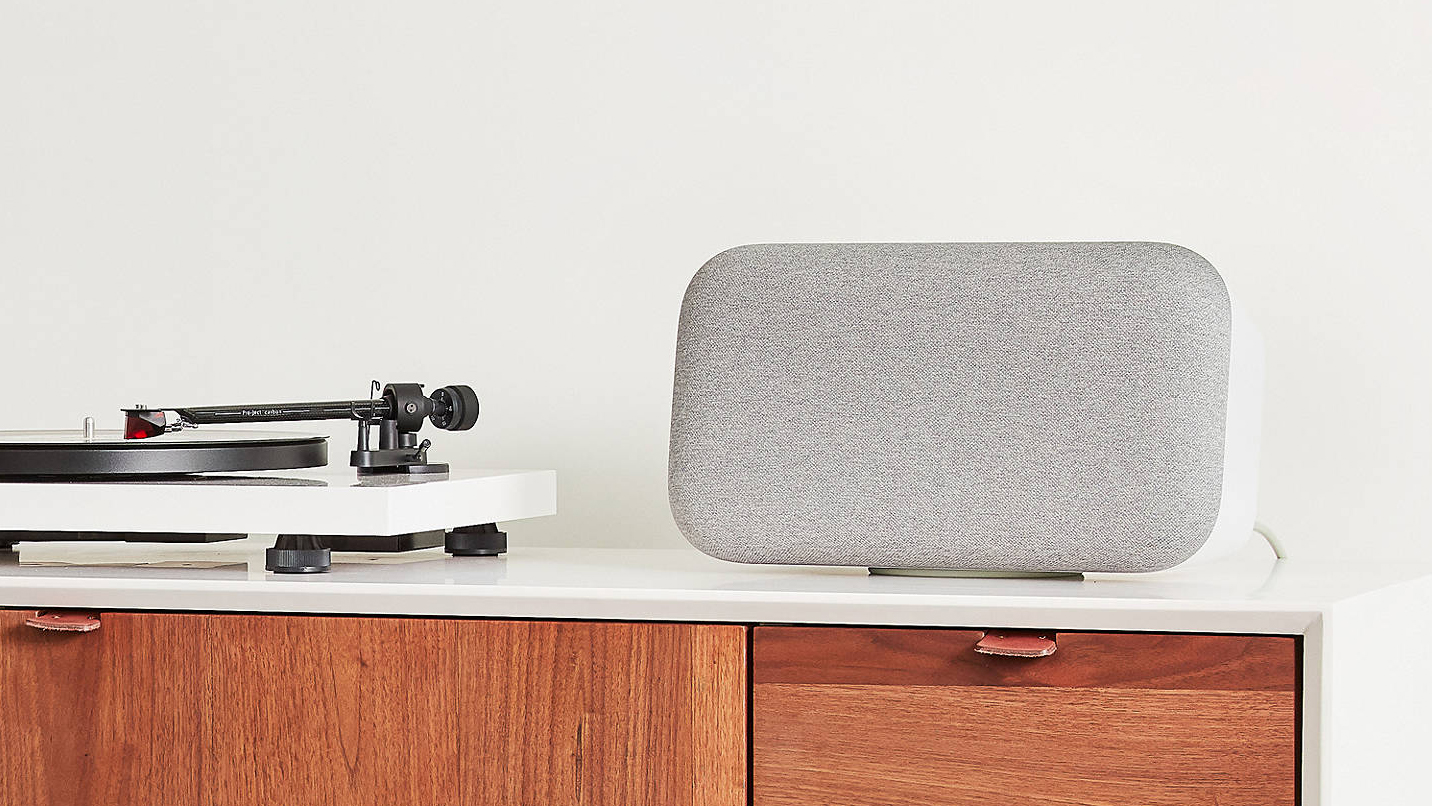What is the Internet of Things?
Wondering what the Internet of Things (IoT) actually is? We've cut through the jargon to talk you through the basics


What is the Internet of Things? If you're new to the world of smart home tech, you'll likely be wondering what the phrase – which tends to be bandied around the tech sphere with little explanation – actually means. Or, it may be that you're quite adept when it comes to using smart home tech in the practical sense, but think that you could benefit from learning a bit more about the theory behind it all.
We're well aware that the world of smart home tech can feel a little alien, especially for those who are new to it, so we've put together a clear, concise and totally jargon free guide, which explains everything you need to know about the Internet of Things.
Want to learn more about the world of smart home tech? We recently launched The Hub, which offers impartial advice and information on all things smart technology, whether you're new to the home tech sphere or know a thing or two already.
Want to know something specific? Jump to a particular section using the links below:
- What is the Internet of Things?
- Internet of Things devices
- What is the Internet of Everything?
- How Internet of Things works
- Internet of Things projects
What is the Internet of Things?
Put simply, the Internet of Things – which you may also see written as IoT – is the idea that everyday, physical devices – or 'things' – can be connected to the internet in order to give them smart capabilities. Think smart fridges, smart speakers... and so on.
Once this connection between object and internet is established, it's then possible to build a network of smart devices which can 'talk' to one-another in order to perform pre-programmed functions.
Internet of Things devices
While, by definition, the Internet of Things connects everyday objects to the internet, those everyday objects do have to be smart enabled. Unfortunately, you cannot simply connect your standard fridge, toaster or kettle to the internet, hence the ever increasing presence of devices advertised as 'smart' on the market.
Get small space home decor ideas, celeb inspiration, DIY tips and more, straight to your inbox!
In order to establish a network of smart devices, you'll need to enlist the help of a smart assistant. You can read more about them in our handy guide, smart assistants: a guide for the beginners and confused.
We've also written a range of guides on specific Internet of Things – or smart, as we've called them – devices. Browse them below according to your interest:
Smart home devices
From smart speakers that allow you to interact with your smart assistant – this is where 'OK, Google,' 'Alexa' and 'Siri' come in – to enhancing your home security there are a whole host of smart devices available, depending on your requirements.
For an overview, you may also find our guide to the best smart home tech for your house a handy read. Or, browse our specialist guides if you have something specific in mind:
- The best smart speaker: Amazon Alexa, Google Assistant, Siri and more
- Best smart plug: control your appliances while you're out
- Best video doorbell: enhance your home security and see who's calling
- The best smart thermostat: reduce your energy use and household bills
- The best smart lightbulbs: enhance the ambience of your home with ease
Smart kitchen devices
The kitchen is, arguably, one of the spaces where smart home tech really comes into its own. Whether you're looking to make cooking, washing or cleaning an easier and more efficient process, there are a whole host of smart enabled devices available:
- What is a smart fridge and do I need one?
- What is a smart oven and do I need one?
- What is a smart washing machine and do I need one?
- Best coffee machines: bean-to-cup, pod or ground
- Smart kitchen gadgets: 6 best smart home buys for your kitchen
Smart bedroom devices
It's also possible to use smart technology to enhance your sleep quality – something we could all benefit from. Here are some of our favourite devices:
- Smart bedroom gadgets: 8 best smart tech buys to help you sleep better
- Best baby monitor: keep your baby safe at nap time
- The best fans: keep your cool all summer long
Smart pet devices
It's also possible to use smart home tech keep an eye on your pets. Here are a few of our favourite devices:
- The best pet camera: keep an eye on your pet while you're out and about
- Best home security system: make protecting your home easy and efficient
- Best smart cat flaps: added security for you and your furry friends
What is the Internet of Everything?
While not dissimilar, at least in its definition, to the Internet of Things, the Internet of Everything encompasses the idea that, in future, all aspects of life – referred to as 'everything' – will be intelligently connected.
While 'things' will form an aspect of this network, the theory behind the Internet of Everything also includes people – particularly the way that they communicate – data and a range of other processes.
The benefit of this, according to industry experts, will be a marked increase in access to valuable information, better informed decision making and, ultimately, a more connected world. As such, the smart systems we've seen, thus far, really are just the beginning.
How Internet of Things works
So, now that you know what the Internet of Things is, you may be wondering how it all works. Generally speaking, smart devices – or smart networks – perform functions based on data that they send and receive. It's the result of technological advances and mobile components that makes this possible.
This data can be collected via a variety of means, though embedded sensors, processors and communication hardware tend to be amongst the most popular methods.
As mentioned previously, the Internet of Things also functions as a result of devices 'talking' to one another. Obviously, this isn't talking, as we know it, but a process called machine-to-machine (M2M) communication, which allows two – or more – devices to interact based on information that they send and receive, between them.
As the industry evolves, smart devices are becoming increasingly intelligent and, as such, their interactions are becoming more specific and more sophisticated. This makes their ability to interact more efficient and the functions they can perform more varied.
Internet of Things projects
The beauty of smart technology is, undoubtedly, its versatility and it's never been easier to build a unique smart network that works for your interests and lifestyle.
While, of course, it's more than possible to stick to the pre-programmed functions that come built into smart devices, it's worth knowing that there's a whole host of potential at your fingertips, should you be interested in building a truly customised smart system.
Built to help users create their own, unique smart system, If This Then That (IFTTT) is a free platform that makes it easy to connect a whole host of apps and smart devices, control them from one central location and, ultimately, get them to interact with one another. In essence, this platform empowers users to enhance the capacity of their smart devices with ease and make their dream smart system a reality.
In fact, for some, working on an Internet of Things projects becomes something of a hobby. Some of our favourites include:
- Getting your outdoor lighting to turn on, automatically, as the pizza delivery man appears at your door;
- Get a notification when the surf's up at your local beach (for those lucky enough to live on the coast);
- Close the blinds, automatically, if a room gets too hot;
- Set your robot vacuum to come on when dust levels get too high;
- Turn on your lights as soon as your open the front door.
Looking for more smart home advice and information?
Emily first (temporarily) joined the Real Homes team while interning on her summer break from university. After graduating, she worked on several publications before joining Real Homes as Staff Writer full time in mid-2018. She left the brand in 2020 to pursue another career, but still loves a second-hand bargain and sourcing unique finds to make her rented flat reflect her personality.
